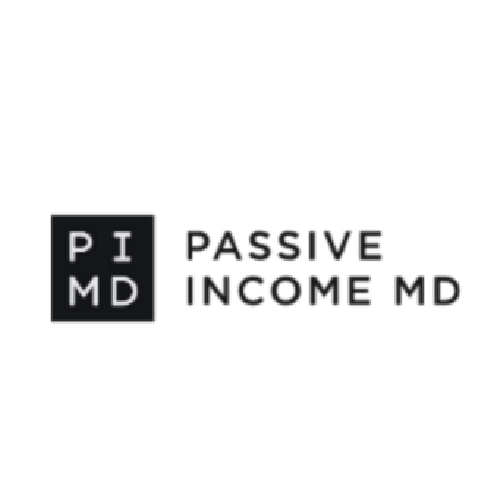As we approach the beginning of 2024, it’s time to start planning for the upcoming tax season. Real estate investors have additional tax benefits to offset passive and active income.
At Viking Capital, we were fortunate to have real estate tax expert and CPA Brandon Hall join us for an exclusive webinar for our investors. Our main objective was to help our investors understand the tax benefits of both passive and active real estate investing. During the webinar, Brandon discussed topics such as depreciation, passive losses, and harvesting for your future. In this article, we have broken down all of these topics in case you missed our webinar.
Optimizing Tax Efficiency: Unveiling the Strength of Depreciation
Depreciation is a powerful tool to reduce taxable income. As per the U.S. tax regulations, businesses can claim a deduction for the expenses incurred for an asset which, in turn, lowers their taxable income. However, businesses are generally required to distribute the depreciation cost of assets over a specific period (usually 27.5 years) as per the guidelines provided by the Internal Revenue Service (IRS). This timeline was standard until the introduction of bonus depreciation.
Three benefits of depreciation are:
- Property depreciation shelters financial returns
- Accelerated depreciation gives you tax savings sooner
- Cost segregation offers an even higher tax shelter
Leveraging Bonus Depreciation for Financial Success
Bonus depreciation also referred to as accelerated depreciation is an even more advantageous tax strategy. Bonus depreciation, also known as accelerated depreciation, is a tax strategy that offers even greater benefits. This strategy allows taxpayers to speed up the depreciation of their property, which, in turn, reduces their short-term taxable income by the cost of depreciable assets. By conducting a cost segregation study, a property analysis can be carried out to determine which components of the asset can be depreciated more quickly, and moved up to 5, 7, or 15 years.
Unfortunately, this incredible tax strategy won’t be available forever. Currently, the government has bonus depreciation on a step-down timeline expiring in 2027. Below is a visual to help demonstrate the decrease in bonus depreciation timeline.
Proven Passive Loss Strategies for Smart Savings
Understanding the difference between active and passive income is very important when you are utilizing tax strategies. Any income made without your direct involvement in the operations can be considered passive. Unfortunately, dividends from stocks are not included, but real estate investments and K1 business ownership where you don’t materially participate are two of the most common income write-offs. As a general rule, rental real estate is passive, and this loss can’t offset your W-2 income or income from an active trade or business. We do, however, suggest you consult a CPA to understand your individual tax situation.
Harvesting Future Losses
A 1031 exchange is a desirable strategy to mitigate your tax liability. With a portfolio that includes limited partnership (LP) investments, a “poor man’s 1031” can be a way to navigate passive losses. This strategy can be used to transition from one LP investment to another without triggering immediate taxes.
Pros and Cons of the “Poor Man’s 1031 Exchange” Strategy:
Pros
- Tax Deferral– deferring capital gains and ability to utilize the current bonus depreciation rate.
- Continuity of the Investment– Seamless transition from one LP investment to another.
- Simplicity– a straightforward investment path, much less complicated than the traditional 1031 exchange process.
Cons
- Limited Control– LP investments often afford limited control to investors, offering them a constrained influence on the overall investment.
- Market Risks– Success is dependent on the availability and performance of a suitable replacement.
- Potential Lower Returns– careful consideration in finding a viable project to ensure to maintain financial viability.
Safeguard Your Real Estate Earnings
Rental losses are considered passive and those losses can be held and carried forward to offset rental income or capital gains in future years. This allows you to harvest these losses until you need to use them to shield your rental income from tax. This is especially advantageous during the sale of a property, to reduce or eliminate the capital gains upon disposition.
3 Ways to Leverage Passive Losses for Income and Capital Gains Reduction
- Invest in another property in the same tax year, and use cost segregation to optimize bonus depreciation to create passive losses to offset the gain.
- Invest as an LP into a project that is also using cost segregation and bonus depreciation in the same tax year.
- Invest in another business that creates passive losses.
Key Takeaways:
One thing is abundantly clear, taxes are inevitable. This is why optimizing tax efficiency and using tax mitigation strategies is imperative. Whether you find yourself creating an active real estate portfolio or investing passively in a Multifamily deal, real estate offers powerful tax advantages. Remember to consult your CPA or tax professional so you don’t miss an opportunity to take advantage of these strategies.
If you missed our webinar here is the replay for you to learn even more: https://vikingcapllc.com/listen-watch/tax-advantages/




















